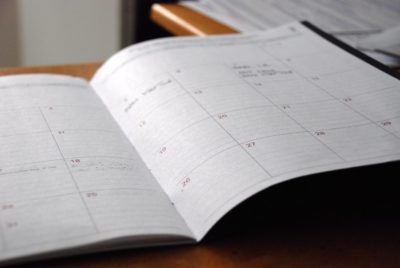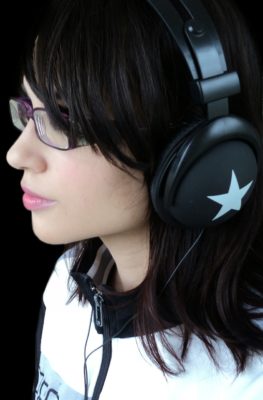
In my fifty years of editing and writing, I’ve discovered that certain conditions put me in a more productive frame of mind than others. When the conditions aren’t ideal for me, I get distracted easily. Disarray puts me in a jumpy mood, and I don’t stay on task. A review of the literature suggests that I’m not alone.
Here are some conditions that influence our motivation to write:
Regular Routine
It’s crucial to create a daily routine, with time clearly allocated to writing. Otherwise, the demands of everyday life can be distracting, making it easy to get sidetracked into non-writing tasks.
Claiming set times in a routine is particularly helpful if you live with someone who needs to learn when to leave you to yourself. Your special time allocated to writing should be clear to everyone.

Ambient Noise
Work in a place conducive to productivity. Although some people can stay focused when surrounded by chaos, noise generally disrupts mental processes. Many people, especially students, vow that soft music or a television set turned on low keeps them on task and in no way hampers their concentration.
Researchers would challenge that claim. They have found that environmental noise—background music, city sounds, people’s conversations—leads to a decrease in performance for most people. While it tends to improve positive emotions, increase performance in sports, and make people complete tasks a little faster, it has disruptive consequences on reading—a chilling finding for writers addicted to ambient noise.

If you live someplace surrounded with noisy kids, pets, and nosy outsiders, you may find yourself getting irritated and frustrated. If this happens, it’s wise to scout around for an alternative workspace where you’ll get peace and quiet as you put your thoughts into writing.
If worse comes to worst, get some earphones that block out environmental sounds. And unplug your phone for a while.
Personal Space
Create your own space, whether you are at home, at the office, or in a public place like a library or a coffee shop. Create boundaries between you and the outside world with familiar personal objects. If you’re in a coffee shop, find a table by yourself and fill the table with a coffee cup, napkins, rough drafts, etc. This not only discourages intruders, but it creates peace of mind: “This space is mine alone.”
By returning to or recreating the same work environment over and over, you help safeguard yourself against writer’s block.
Tidy Work Area
A clear desktop clears the mind. Many writers work in a messy work environment. It’s not what they prefer, but it’s what they do, mostly out of task avoidance or downright laziness. If you belong to this category of writers, you’d best tidy up your work area before attempting work. It’s surprising what a salutary effect this has on productivity. You don’t have to break your concentration for items you’ve misplaced.
Comfort
The room should be clean and cooled or heated to a temperature that feels comfortable to you. Your desk chair should be large enough to take your full weight and support your back. Backaches are not conducive to productivity. Have a desk large enough to accommodate plenty of clean surface area to work on. Adjust your computer screen to the correct angle and distance for easy viewing. Your laptop or desktop computer should have a comfortable and ergonomic keyboard.
Writer’s Accessories
Create an efficient and well-stocked workplace. If you use the internet for research, you need a reliable and fast internet connection for easy access to information. If you take notes while working, have a writing pad and pens or pencils handy.
Attire
Wear clothes that are loose-fitting, clean, and attractive in a low-key way. If you think your attire is irrelevant to your motivation, think again.
Wearing pajamas may work for some people, but it makes many of us sleepy and tired, wanting only to retreat to our beds for a short restorative nap. Dressing to the nines has the opposite effect. We’ve prepared ourselves to go out on the town, not work at the keyboard.
Wear garments that make you feel presentable, clean, and alert, but not all dressed up with no place to go.

Shoes? By all means, go without. Based on observations of thousands of children from 25 countries over 10 years, academics concluded that children who slip off their shoes are more likely to arrive at school earlier, leave later, and read more widely. Comprehensive new research suggests that shoeless kids are more engaged in lessons leading to better concentration and test results.
Hit Pause!
There are times when attempting to write is just not a good idea. One thing is clear—if you are angry or upset, the last thing you should do is write. Writing requires a clear mind, unclouded by negative thoughts. Wait until your feathers are no long ruffled. Then go for it!

Cassie Selleck
I am taking these suggestions to heart. Going to declutter and set myself up for success. Thanks, Barbara!
Barbara Cox
Cassie,
When you’re through with your desk, would you come and declutter mine?
Mary Bast
Hi Barbara, so happy to see you here and love this piece, written with your usual talent and sense of humor. And I’m glad to know my barefoot preference has been good for me!
Barbara Cox
Mary,
A friend came to my house yesterday and, seeing shoes on my feet, asked “Where you been?”
😉
Sidney
I agree that we can create conditions that are conducive to writing and editing, but I don’t agree that there are any one-size-fits-all conditions.
Does returning to the same writing environment guard against writer’s block? No guarantees, there! Sometimes a change of environment can kick the old noodle into gear. While a “tidy work area” might be necessary for some to succeed, I don’t think it’s necessary or even advisable for all. Having ambient noise works for me. (What would really rattle me is knowing that “researchers” were observing me at work.) Have you seen the pix of a rumpled Hemingway, bare-chested and in shorts at his typewriter? It worked for him.
The key is not following some other person’s rules, it is paying attention to what works for YOU.
Also, I say: go ahead and write when angry. There is absolutely nothing wrong with that. No one is reading over your shoulder. Why hold back? Raw emotion and allowing thoughts to flow without editing can be a good and productive thing! (Even if those words are just a mind dump that clears the decks for the “real” work.) Just don’t send that raw draft anywhere! Write angry, but edit in peace, I say. (A variation on Hemingway’s “Write drunk. Edit sober.”)
Barbara Cox
Sydney,
The best advice you gave IMHO is to do ‘whatever works’. I for one am driven crazy by ambient noise. If I’m on the phone and there’s music playing in the background, I have to turn it off before I can concentrate on what the person is saying. Pathologic? Maybe.
And then there’s good old Thomas Wolfe. Writing on top of his refrigerator.
Loved your dose of reality.
Skipper Hammond
But what about the internal distractions–ancient conversations, last night’s headline news, a computer problem, the long list of this afternoon’s todos, the longer list of yesterday’s should-have-dones? How can we switch off all that buzzing in our heads?
Barbara Cox
I don’t know what works for other writers, but for me, getting into the content of my prose takes me to a more pleasant place than my idle mind does (often a bad neighborhood).
Joan H. Carter
About the cluttered desk: If I don’t sit down to write before clearing the clutter, I will NEVER write a word. My worst problem finding time to write is telling myself I MUST read and get rid of or organize all those papers. I just have to ignore the mess and focus on my story. Then I do need the quiet you mention, and I lose track of time.
Barbara Cox
Joan,
Thanks. I think you’ve described a very common experience. I resonate.
Kaye Linden
Excellent simple steps and easy to follow. I turn off the phones and that includes the cell with it’s annoying texts. Total silence. A strong cup of tea. No shoes. Workout gear. (We are working out!) but first a yoga class to error me down and meditation to clear the mind. My writing time is afternoons and early evening. Kaye
Kaye Linden
Correction: the yoga class winds me down. Maybe it “errors ‘ me Down too! Fewer errors, better writing. Lol. Kaye
Barbara Cox
Great comment! Thanks.
BC